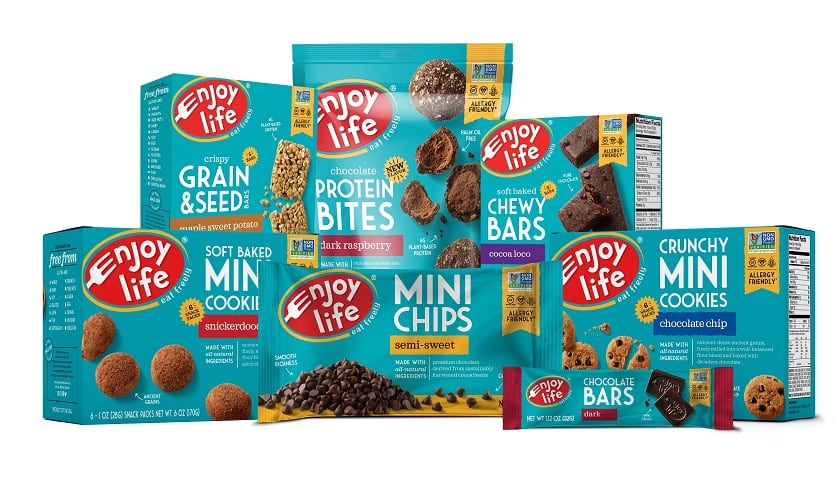Gut health is on the rise of consumer’s wellness priorities, evident by the food industry’s uptake with a number of NPDs specifically tailored to this, such as Kellogg’s cereal Hi! Happy Inside, which contains one billion live probiotics, prebiotics and fiber.
Irritable bowel syndrome (IBS) is thought to affect approximately 20% of Brits and Americans, while only 1% of the populations suffers from celiac disease. Yet gluten-free consumers are far better catered for.
However, industry analysts say this could change as the low FODMAP diet takes hold.
What is FODMAP?
The lifestyle excludes foods that contain fermentable oligosaccharides, disaccharides, monosaccharides and polyols – or short-chain sugars or fibers – the body may have trouble digesting.
Essentially, it’s a diet free from wheat, dairy, lactose and everyday ingredients like pulses, onions, garlic and honey, among others.
The diet was created by researchers at Monash University in Australia in 2008 and today appears in the British Dietetic Association IBS Guidelines.
It has been found to improve up to 86% of symptoms, which are similar to those caused by a gluten intolerance.
It involves excluding foods high in FODMAPs and then reintroducing them gradually while monitoring symptoms. The aim is to find a regimen suitable in the long term to the individual’s own tolerance.
Industry responds
The complete list of high FODMAP foods is extensive, which makes the diet very complex and time consuming to follow, however, as public awareness grows, so industry is responding.
Mondēlez’ Enjoy Life Foods brand, for example, has been granted FODMAP Friendly certification for several of its products, including grain and seed bars to protein bites, mini cookies and chewy bars. According to Joel Warady, GM of Enjoy Life Foods, the company is placing a strong focus on gut health.
“We believe 25% of our 81 SKUs, across seven snack categories, will be certified as FODMAP-friendly soon,” he said.
Likewise, Nestlé, Frazer - a Nordic bakery conglomerate - and Schär are all tapping into the FODMAP-friendly arena with new products.
Certainly, data from Mintel’s Global New Products Database (GNPD) reveals the number of snacks, cereal and energy bars with a high/added fiber claim has sharply declined.
“We do see that, in fact, the gluten free trend is starting to decline in the US. It’s even facing a certain backlash: There are new studies [that] say that it clearly is not as beneficial for health as it was perceived before,” Katya Witham, global food & drink analyst at Mintel, told BakeryandSnacks.
“We are seeing a clear shift to a different type of diet like paleo, and FODMAP could be potentially one of those.
“I think it’s still too early to say if FODMAP will develop from the niche where it is now to something more mainstream. But, it’s definitely something to keep an eye on.”




